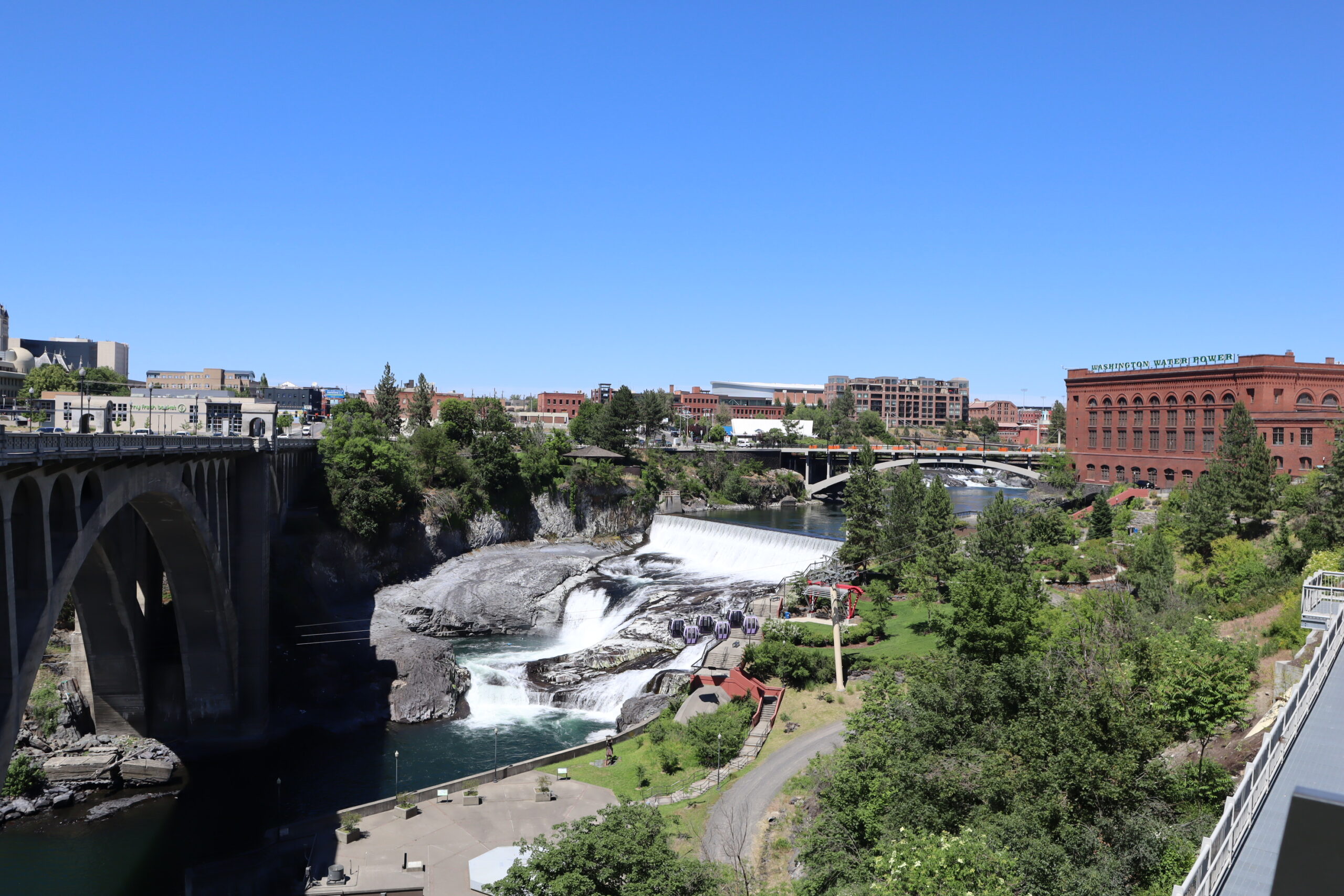
Events
Convening Northwest Legislators Around Regional Transmission and Energy Policy
June 27, 2024
On June 23-25, legislators from four states gathered in Spokane, Washington to discuss regional transmission and energy needs. The convening included 15 bipartisan legislative champions and 4 legislative staffers from Idaho, Montana, Oregon, and Washington.
Legislators were greeted in Spokane with a happy hour reception at Iron Goat Brewing in downtown Spokane.
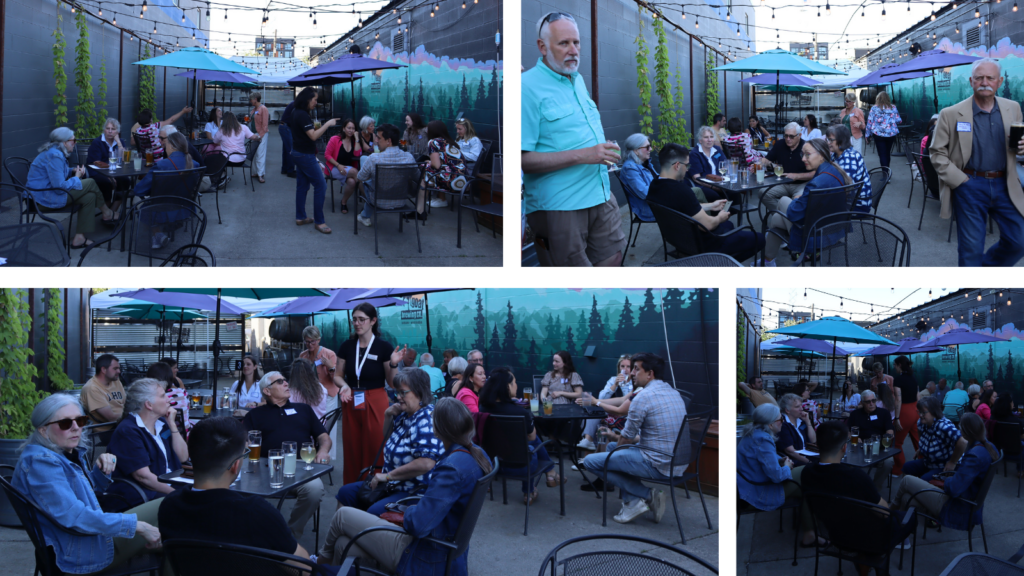
Day One
The event kicked off on Monday morning with a panel breaking down the basics of what transmission is, why it matters, and why the Northwest is unique when it comes to transmission development in the West. This first panel included speakers from Renewable Northwest, utility representatives from Avista and PGE, and a representative from Bonneville Power Administration (BPA). The next panel was a deep dive on Bonneville Power Administration (BPA) and the specific role that this federal agency has in the Northwest when it comes to transmission and how legislators can engage with BPA.
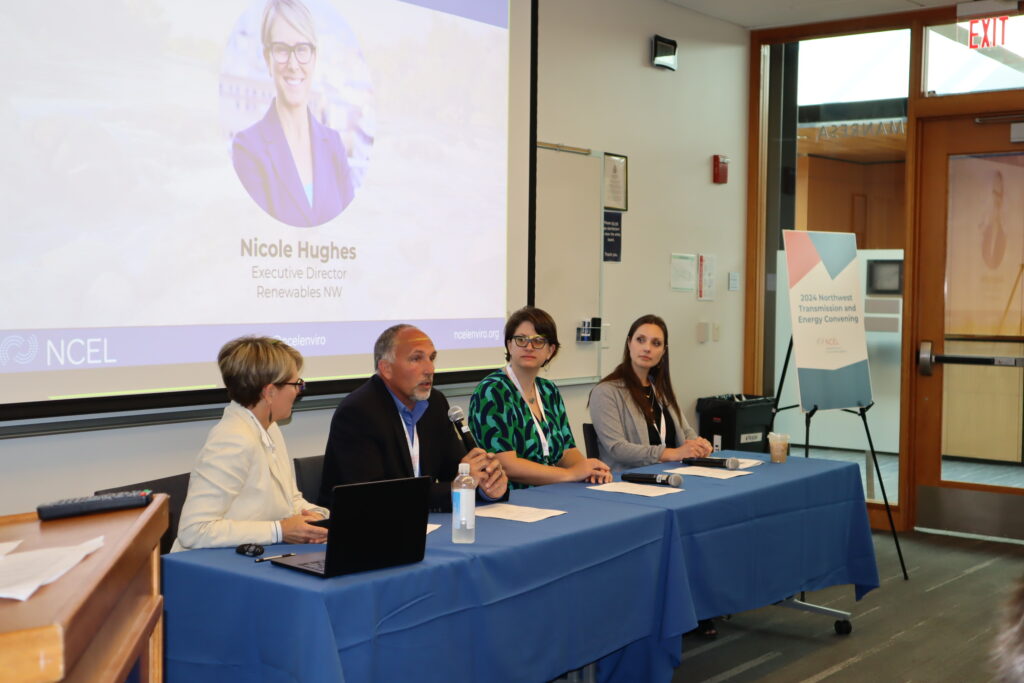
Transmission 101 Panel: Nicole Hughes (Renewable NW), Scott Kinney (AVISTA), Pam Spoborg (Portland General Electric – PGE), Katie Sheckells (Bonneville Power Administration – BPA)
During lunch, legislators were given a keynote address about the importance of Tribal consultation and collaboration when thinking about transmission and energy development. Speakers representing the Confederated Tribes of the Warm Springs and Warm Springs Power & Water Enterprises, a Tribal utility, spoke to legislators about understanding Tribal sovereignty, how to approach consultation and collaboration with Tribes, and a successful example of a project between the Confederated Tribes of the Warm Springs, local utilities, states, and the Federal government.
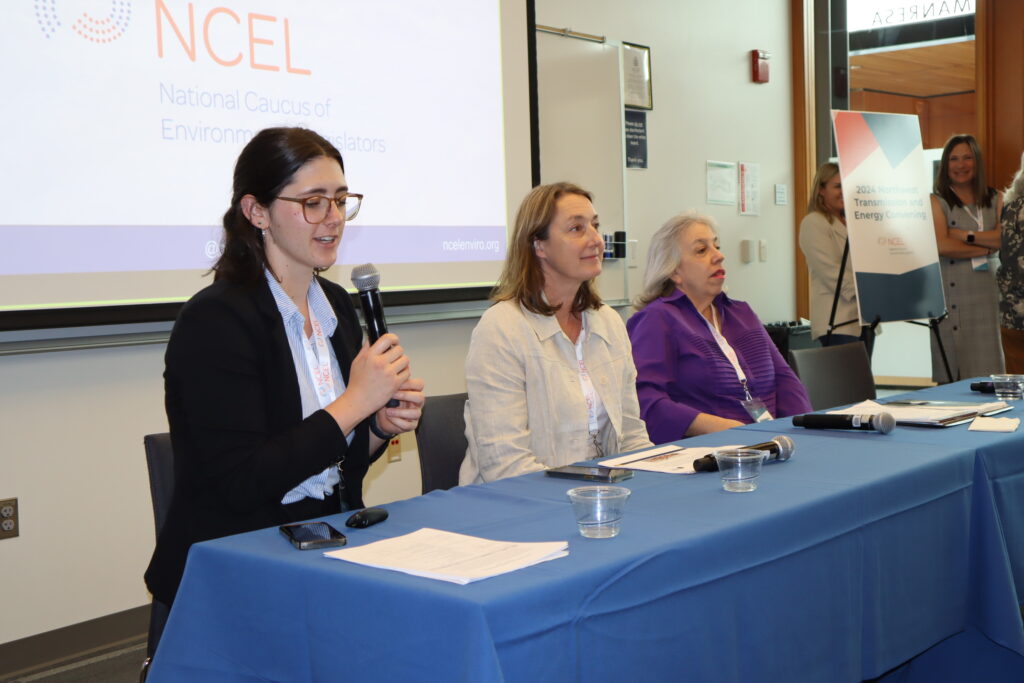
Keynote address: Sidra Aghababian (NCEL), Cathy Ehli (Warm Springs Power and Light), and Ellen Grover (BBK Attorneys at Law)
Following lunch, legislators came back together for a discussion about markets and regional transmission organizations (RTO). Panelists from Oregon’s Public Utilities Commission (PUC), NW Energy Coalition (NWEC), PNGC Power, and the Oregon legislature explained what it means for the West to not currently have an RTO, what is being done in the creation of an RTO, and what role exists for state legislators when it comes to an RTO. The last panel of the day looked to the future. Panelists from American Clean Power (ACP), RMI, Gridlabs, and Northwest Power Pool Corporation presented on what is being done in regards to planning transmission in the West and how legislators can be engaged in long-term planning processes.
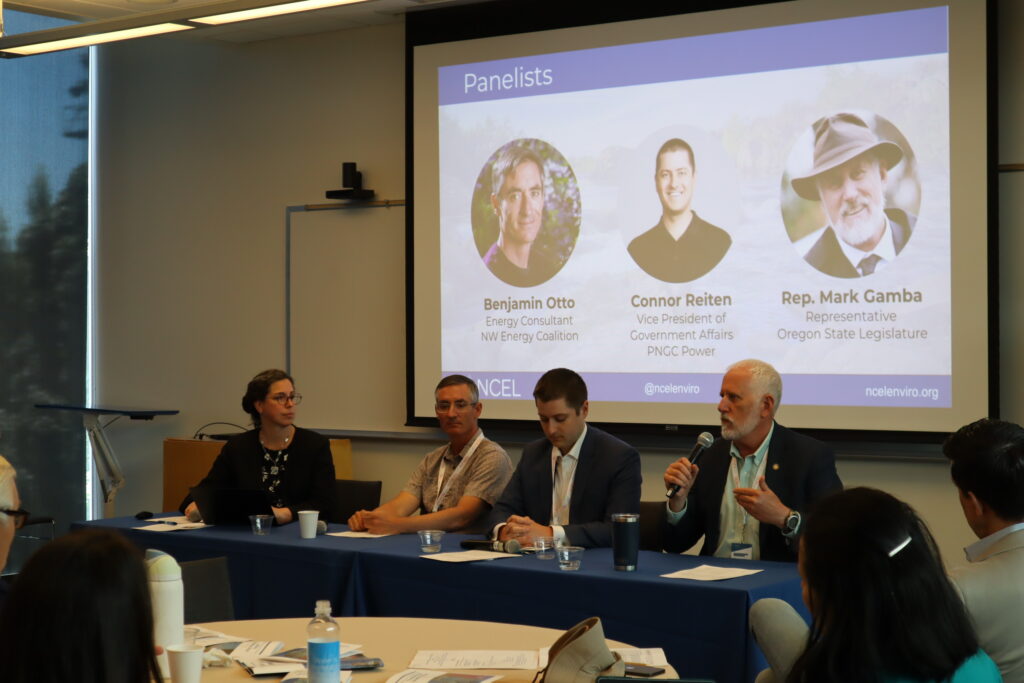
Regional Transmission Organizations (RTOs) Panel: Commissioner Letha Tawney (Oregon Public Utilities Commission), Ben Otto (Northwest Energy Coalition – NWEC), Connor Reiten (PNGC Power), and Representative Mark Gamba (Oregon House of Representatives)
Finally, legislators were talked through NCEL’s Transmission Briefing Book to go over what policy options for transmission exist for state legislators. Following this walk-through, legislators broke into small group conversations to hone in on some of these options like grid enhancing technologies (GETs), streamlining permitting and siting, colocating with existing rights of ways (ROWs), labor & transmission, and conservation & transmission.
That evening, legislators and speakers gathered for dinner at Mizuna, a restaurant situated in the heart of downtown Spokane that specializes in seasonal, local, and sustainable food.
Day Two
The second day kicked off with a tour of Avista Utilities, a local energy and gas utility that spans Idaho, Montana, Oregon, and Washington. At this tour, legislators were brought behind the scenes to see the day-to-day operations of how Avista buys and sells energy supply in the market, the transmission control center to see what’s happening in real time on the transmission system, and the distribution control center which showed how Avista gets energy to customers. The tour guides at Avista provided a unique role by connecting what legislators had learned the day before to real-time operations at a utility.
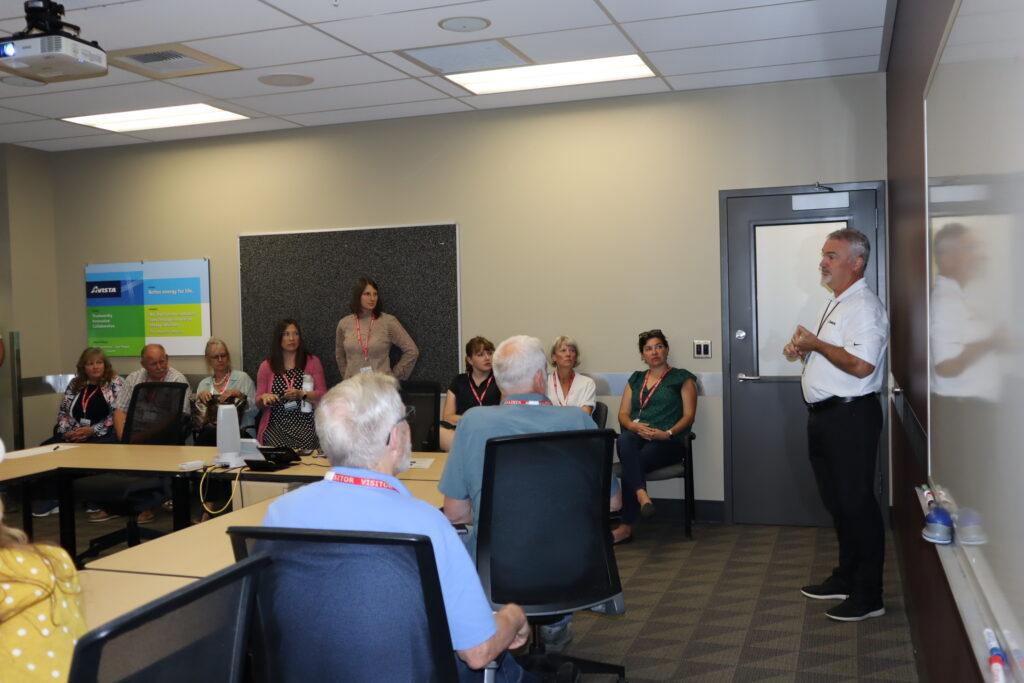
Legislators gathered at AVISTA’s Operations Center and Lab receiving an introduction from Mike Magruder (AVISTA)
After the tour at AVISTA, legislators could participate in a tour of the Spokane Falls. The Spokane Falls and River served as the center of culture and community for the Spokane Tribe. The Spokane Falls were also the site for the beginnings of hydroelectric power in Spokane. Washington Water Power, now called Avista, built the first dam and generator facility on the Falls, which has been providing hydroelectric power since 1890. The historic Washington Water Power building still overlooks the lower falls, dam, and power station that services thousands of customers throughout the region.
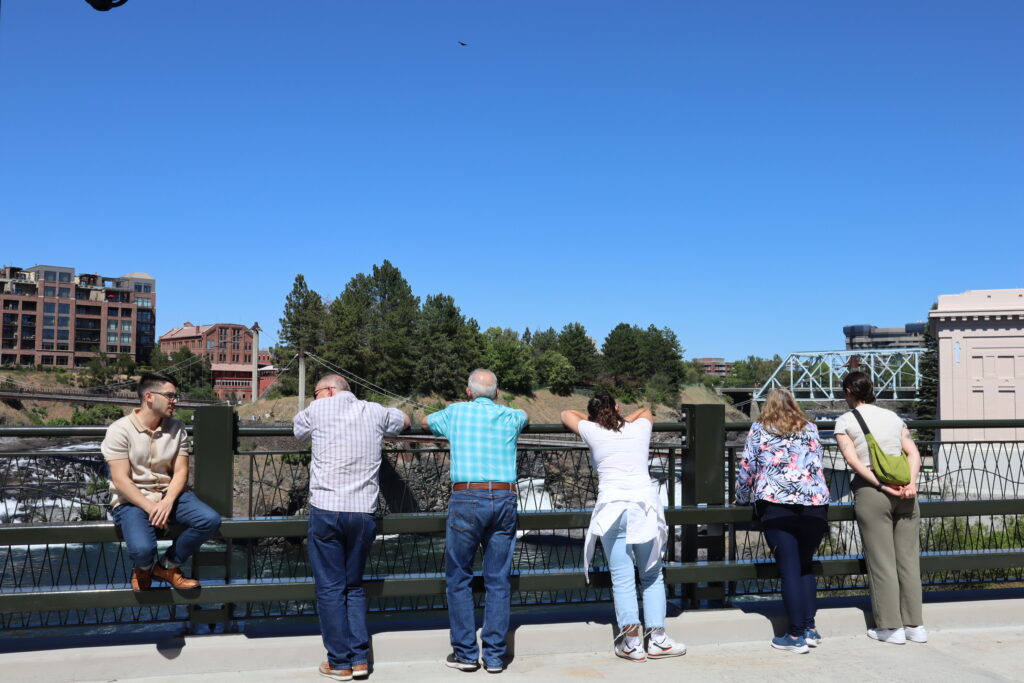
Legislators and NCEL staff gathered at Spokane Falls: Sal Messina (NCEL), Representative Barry Usher (Montana House of Representatives), Representative Garry Perry (Montana House of Representatives), Ava Gallo (NCEL), Ann Marie Usher (Usher Enterprises), and Sidra Aghababian (NCEL).
Looking Ahead
This group of legislators left the Convening with the tools and resources needed to bring legislative ideas back to their states for the 2025 session and beyond. Across the country, states are considering how to address concerns related to grid affordability, reliability, resiliency, and security with transmission playing a large role in addressing these concerns. Recent rules from the Federal Energy Regulatory Commission (FERC) related to improving regional transmission planning and cost allocation put U.S. states at the forefront of transitioning to a resilient and renewable energy grid.
NCEL is excited to see the continued collaboration from the Northwest states on transmission development and clean energy at large with the unique challenges their region faces.
Keep up to date on grid and utility legislation introduced this session on NCEL’s Utilities and the Grid Issue Page.